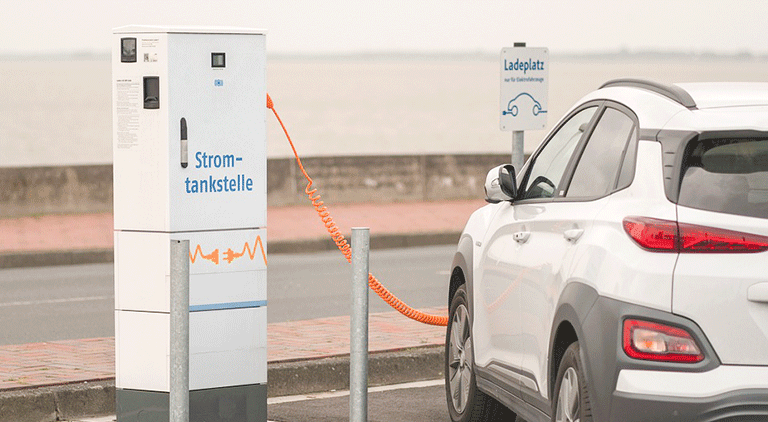3 Trends Reshaping the Future of E-Mobility Market
By EPR Magazine Editorial October 3, 2020 2:13 pm IST
By EPR Magazine Editorial October 3, 2020 2:13 pm IST

Electric mobility trends are undergoing a fundamental transformation, driven by environmental concerns, climate change, urbanisation, and fossil fuel crisis. Innovations are taking place at a rapid pace along the entire e-mobility value chain.
BMW AG, Yamaha Motor Company Limited, Nissan Motor Corporation, Mahindra Group, Tesla, Honda Motor Co. Ltd, Suzuki Motor Corporation, KTM AG, GF Health Products, Inc., and Kinetic Green Energy & Power Solutions Ltd. are some of the major players constituting global electric mobility market.
Here are some of the most influential trends driving future developments in the rapidly growing electric mobility space worldwide.
Growing deployment of EV charging infrastructure
With a substantial rise in pollution and global warming, most consumers are shifting to sustainable mobility solutions such as electric bikes, electric scooters, and electric cars as a form of personal mobility. A positive outlook towards shared mobility and sustainable transportation is likely to create new opportunities for market players.
Recent years have witnessed a monumental deployment of EV charging infrastructure worldwide. For example, Japanese shopping mall developer AEON Mall is supporting EV adoption among its customers in collaboration with Japan-CPL and together they have installed more than 1,000 EV charging points across the country.
Educational institutions are also promoting sustainable mobility across their campuses by deploying electric vehicles for mobility and installing EV chargers. Citing an instance, Lewis and Clark institute has installed an extensive EV charging infrastructure to promote sustainable utilisation of energy.
Increasing demand for 48V battery-powered EVsLeading auto component makers such as Bosch, Delphi, and Continental have been working on designing 48V engines for high-performance electric cars. According to the U.S. Department of Transportation, EV manufacturers need to comply with latest safety and energy efficiency regulations and performance standards in order to ensure efficient and optimal functioning of vehicle components. The need for EVs with smart and automated technologies will bolster the industry outlook.
Expanding trend of green license plates in Asia Pacific
The Asia Pacific region, which is home to some of the world’s most renowned automakers, is likely to hold a substantial share of global electric mobility industry over the next few years. China, India, Japan, and South Korea have witnessed a dramatic rise in the adoption of electric vehicles in recent years. These countries are expected to invest substantially in advancement of their EV charging infrastructures. Factors such as increasing domestic production, the presence of OEMs, and tight environmental regulations will complement the regional outlook.
Government and regulatory authorities in China are introducing green license plates for new electric vehicles to promote the idea of electric mobility across the country. Green number plates is among the latest trends in China which has complemented the adoption of zero-emission vehicles. Consumers based in Shenzhen, Nanjing, and Shanghai are purchasing EVs due to easy availability of green plates.
The industry is witnessing consistent innovations across developing economies as well. In September 2020, Indian company Mahindra Electric Mobility had launched its popular MESMA 48 platform light electric vehicles (EVs) globally. The MESMA 48 platform is highly scalable and has powered more than 11,000 electric cars on Indian roads till date.
We use cookies to personalize your experience. By continuing to visit this website you agree to our Terms & Conditions, Privacy Policy and Cookie Policy.